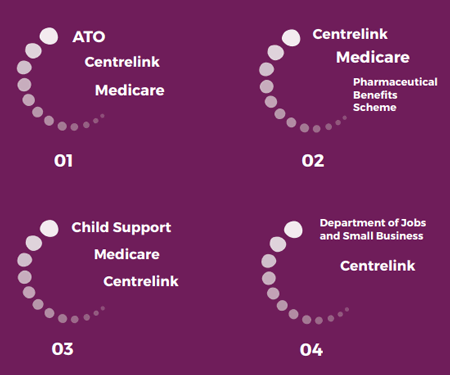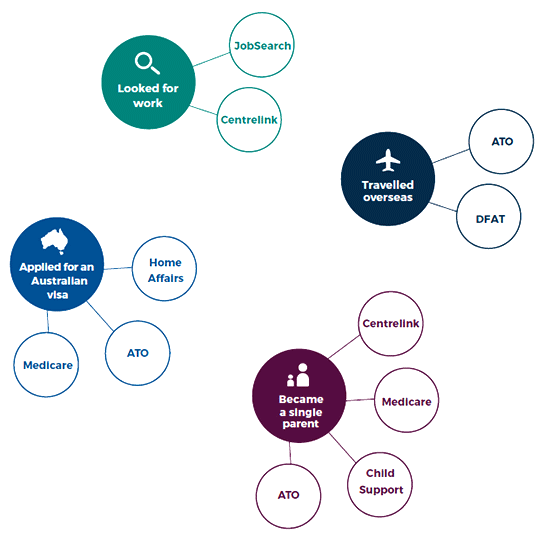Opportunity
The Survey provides insight into service delivery through the eyes of the public. Results show why and how people interact with Australian public services.
Using Survey data, we have begun to explore service journeys. Analysis indicates common 'service clusters' (groups of services) that are used for the same reason. The results of this can be seen in the diagram, with an example of a common cluster being the ATO, Centrelink and Medicare.
The next stage in this research will be to understand what reasons (e.g. having a baby) underpin these service clusters. Examples of this next stage are over page. Further analysis will look to understand who (e.g. young people) accesses multiple services and their unique needs.
This research will be conducted with all agencies that have data and analysis on service use.
Understanding these service journeys is important for the design of tailored and responsive services to meet the expectations and needs of the public.

Why do people access multiple services?
Using Survey data, we can gain an understanding of the life events (such as travelling overseas) that lead people to interact with multiple services.
Sometimes, the same combinations of services may be accessed by many people because of a life event.
For example, when looking for work, people commonly use both JobSearch and Centrelink.
However, there are a range of combinations of services used for each life event (see over page).

What services do people access?
For all respondents who 'had a baby' in the last year...
.. they commonly accessed Centrelink and Medicare.
The top 5 combinations of services for people who have experienced the “had a baby” life event were:
- Centrelink and Medicare
- Centrelink alone
- Medicare alone
- Centrelink, Child support and Medicare
- Centrelink, Medicare and ATO.
